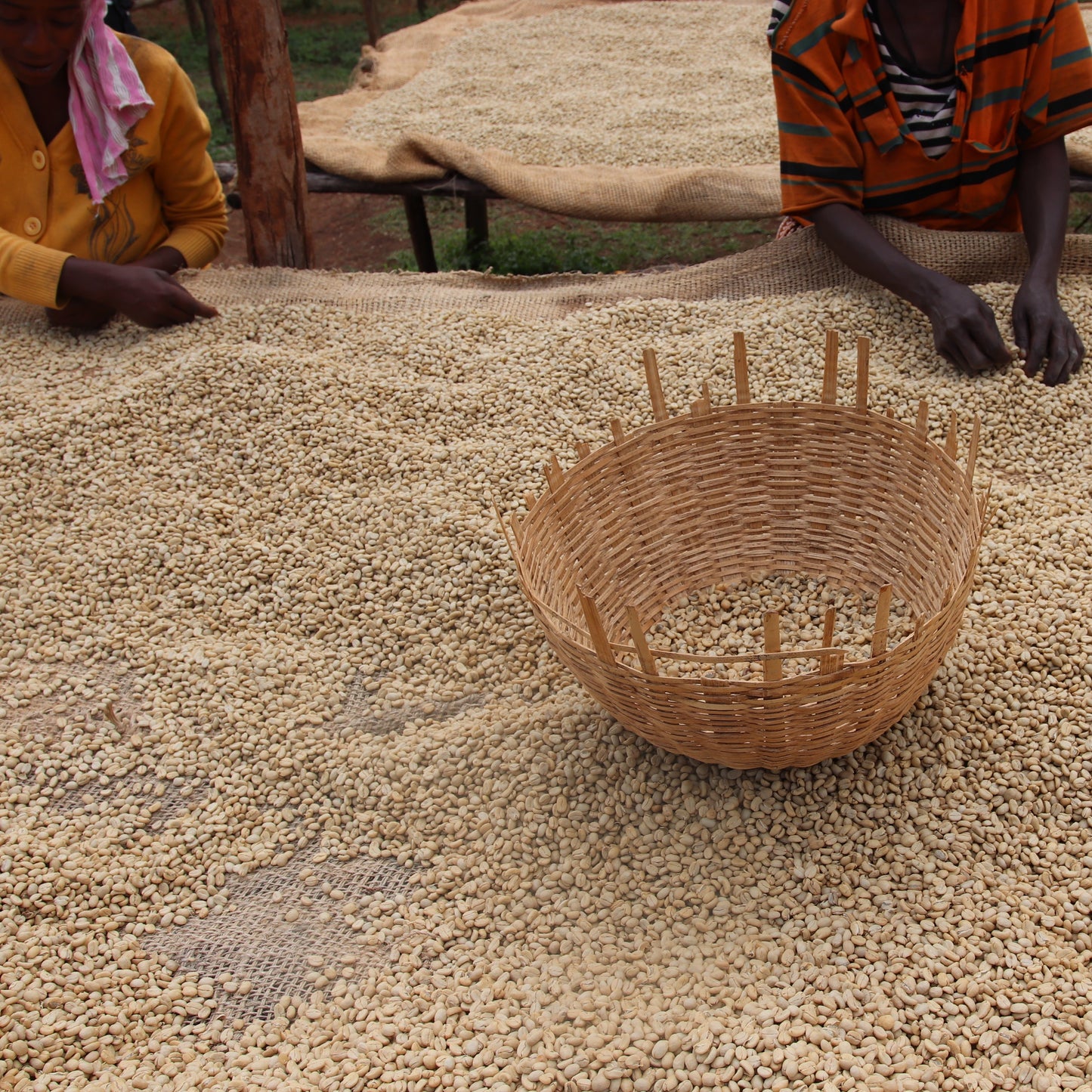Ethiopia Halo Beriti - Washed
Ethiopia Halo Beriti - Washed
Couldn't load pickup availability
“A clean cup with hints of jasmine, tamarind, raspberry and orange.”
Halo Beriti is a village located in the southern part of Ethiopia's Yirgacheffe Gedeb District, within the Gedio zone. This coffee is cultivated and processed at elevations ranging from 1900 to 2300 meters above sea level, benefittingfrom an optimal coffee-producing environment.
The coffee's name originates from the village itself. The majority of Haloberiti coffee is grown in a small area near the farmers' gardens. In addition to their coffee farming this region is well-known not only as one of the most revered and popular coffee-growing areas worldwide but also as the home of numerous families deeply involved in coffee production. Their livelihood largely depends on selling coffee, making it vital to the Haloberiti community. With its high altitudes and rich coffee farming heritage, the community's deep bond with coffee cultivation is intertwined with their cultural heritage, providing sustenance to their way of life.
The area's elevation and microclimate play a significant role in enhancing the exceptional quality of the coffee grown there, shaping its unique often featuring floral and fruity notes, along with hints of citrus, jasmine, and a bright acidity. Described as having a medium body with a delightful lingering finish, this coffee has become a favorite among specialty coffee enthusiasts.
Our processing facilities are carefully organized to consistently produce exceptional coffee each year . We source meticulously handpicked shade grown tree coffee cherries from more than 550 family-owned farms in Halo Beriti. Our dedicated processing site is operated by a team of 115 employees. our company is committed to vertical integration with the local farmers in the Halo Beriti area. We provide financial support, subcontracting opportunities, and offer premium prices to the farmers, aligning with our ethical standards and commitment to sustainable farming and production.
The washed coffee process, also known as wet processing, is a method used to separate coffee beans from the cherry fruit before they are dried. Here's an overview of the process:
Ripe coffee cherries are selectively harvested by hand, ensuring that only the red, ripe cherries are collected. The outer skin of the coffee cherry is removed using a pulping machine, which extracts the beans from the fruit. The beans, still covered in a layer of mucilage, are then fermented in water. This step can take anywhere from 12 to 48 hours, and it helps to break down the remaining fruit layer. After fermentation, the beans are washed thoroughly to remove any remaining mucilage.
After the washing process, the beans are spread out in thin layers to dry under the sun until they reach the ideal moisture level of about 11%. After this, the coffee is taken to a local warehouse for thorough sorting and hulling, where the parchment layer is removed revealing the green coffee beans. These beans are then prepared for the roasting process, while stringent quality control measures are upheld until the final export stage.
The washed process is known for producing coffees with bright acidity and a clean, crisp flavor profile, as the method allows for the expression of the natural characteristics of the coffee beans. The final processing and cleaning will be carried out at a subcontracted processing and warehouse facility in the Kaliti area of Addis Ababa.
The coffee is processed based on categories considering density, screen size, removal of undesirable small debris, and rocks.
The finished clean coffee is directly placed into jute bags and wrapped in Ecotact plastic bags. After the packaging is complete, reference samples are taken, and evaluation and cupping are performed before the products are shipped to the desired destination. dry mills handle the physical filling of containers and prepare necessary documentation and procedures required for a successful export.
Photo: Falcon Coffee


